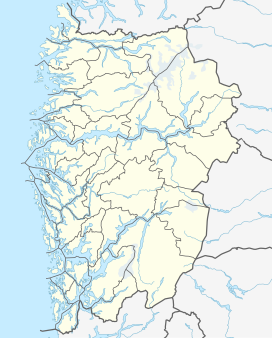| Ringstindane | |
|---|---|
 Store Ringstind | |
| Highest point | |
| Elevation | 2,124 m (6,969 ft) |
| Prominence | 180 m (590 ft) |
| Coordinates | 61°26′31″N7°48′2″E / 61.44194°N 7.80056°E |
| Geography | |
Ringstindane [1] is a mountain ridge consisting of three peaks south-west in Jotunheimen National Park in Vestland, Norway. The highest peak reaches 2,124 m (6,969 ft) above sea level.

